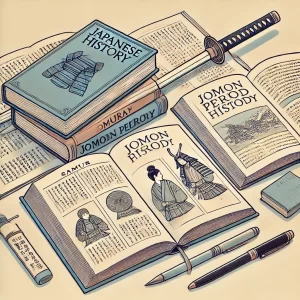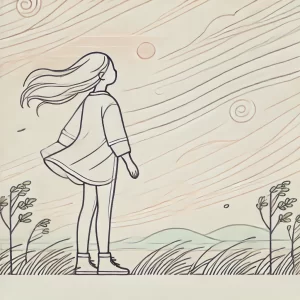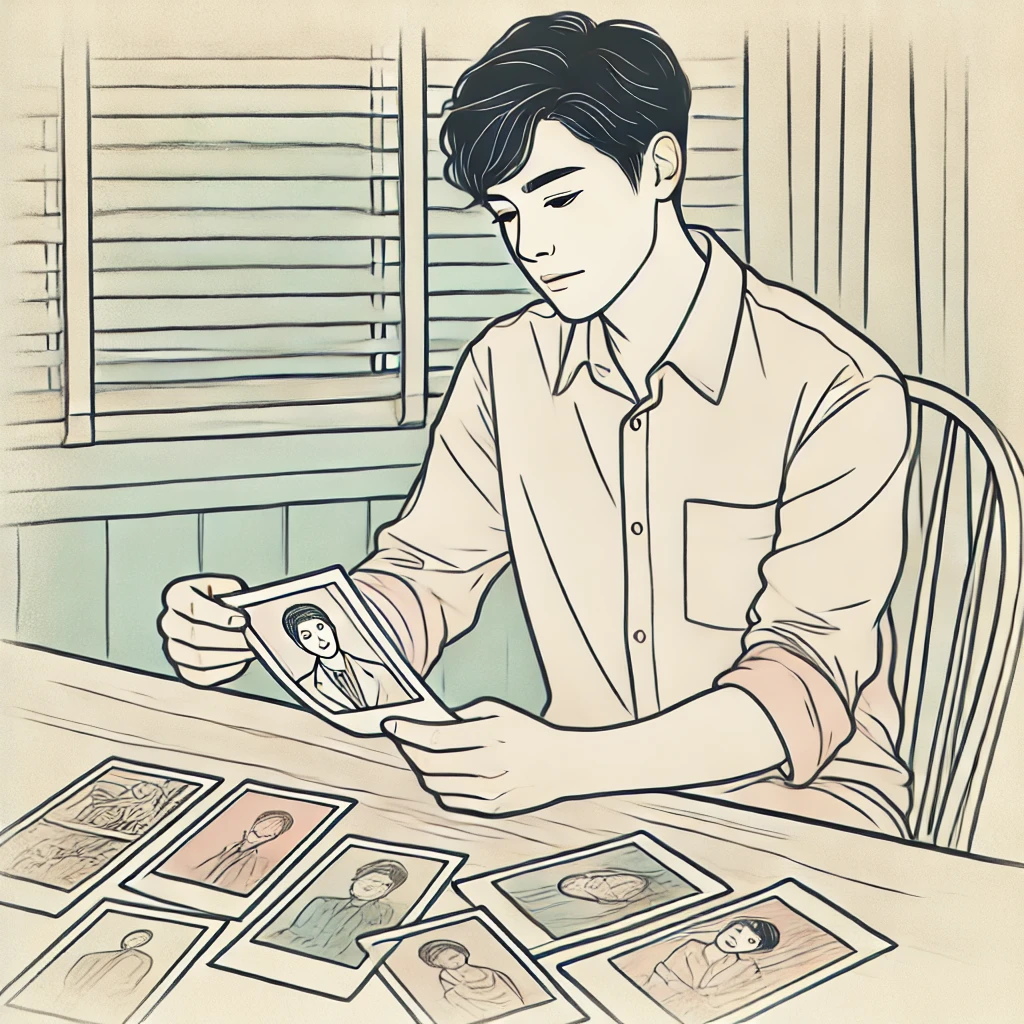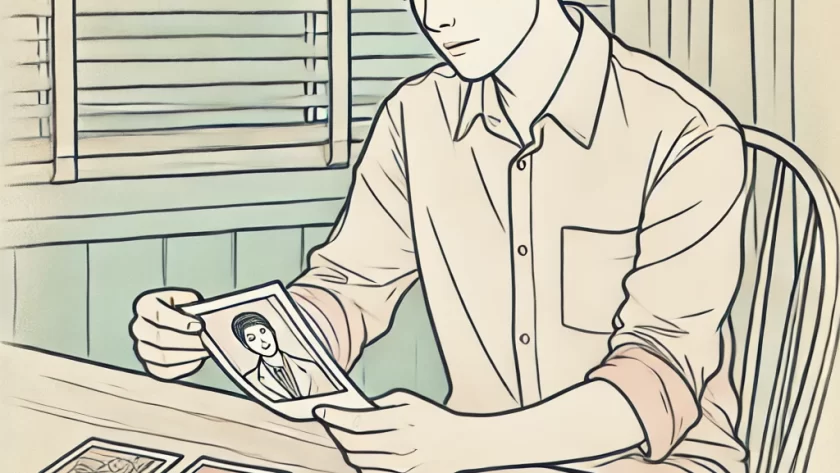時代 [Jidai]
中島みゆき [NAKAJIMA Miyuki]
Words & Music : 中島みゆき [NAKAJIMA Miyuki]
Miyuki Nakajima is a representative singer-songwriter of Japan. She is the only solo artist who has achieved number one in the “Oricon,” Japan’s general hit chart, in the four decades of the ’70s, ’80s, ’90s, and 2000s.
“Jidai” was released in 1975, early in Nakajima’s long career. It’s a famous song covered by many people over the years, and in 2007 it was selected as one of Japan’s Top 100 Songs.
今はこんなに悲しくて
ima wa konna ni kanashikute
涙もかれ果てて
namida mo karehatete
もう二度と笑顔には なれそうもないけど
mō nidoto egao ni wa naresō mo nai kedo
- 今(いま) [ima] : now
- こんなに [konna ni] : so much
- 悲しい(かなしい) [kanashii] : sad
- 涙(なみだ) [namida] : tears
- 枯れ果てた(かれはてた) [karehateta] : dried up
- 二度と..ない(にどと..ない) [nidoto..nai] : never again
- 笑顔(えがお) [egao] : smile
- なる(なる) [naru] : become
(translation) “Even though I’m so sad now,
and my tears have dried up,
I feel like I can never smile again.”
Now, let’s explain the title “Jidai.”
- 時代(じだい) [jidai] : era, period, days
It is said that the “Jedi” in “Star Wars” is derived from the Japanese word “Jidai-geki”. Jidaigeki generally refers to samurai movies, but originally means “a period dramas,” such as the Edo period, Meiji period, Showa period, etc.
It can also refer to specific periods in a person’s life, like childhood, adolescence, singlehood, etc.
All of these are used with the term “Jidai”.

そんな時代もあったねと
sonna jidai mo atta ne to
いつか話せる日がくるわ
itsuka hanaseru hi ga kuru wa
あんな時代もあったねと
anna jidai mo atta ne to
きっと笑って話せるわ
kitto waratte hanaseru wa
- そんな [sonna] : such
- ある [aru] : exist
- いつか [itsuka] : someday
- 話す(はなす) [hanasu] : talk
- 日(ひ) [hi] : day
- くる(くる) [kuru] : come
- あんな [anna] : such
- きっと [kitto] : surely
- 笑う(わらう) [warau] : laugh

(translation) “There were such times, too.
A day will come when we can talk about them.
There were such times, too.
We’ll surely laugh and talk about them.”
To summarize, this is what it means.
Although they are currently so sad that their tears have dried up, they believe that someday they will be able to laugh and talk about it.
だから 今日はくよくよしないで
dakara kyō wa kuyokuyo shinaide
今日の風に吹かれましょう
kyō no kaze ni fukare mashō
- だから [dakara] : therefore
- 今日(きょう) [kyō] : today
- くよくよする(くよくよする) [kuyokuyo suru] : worry
- 風(かぜ) [kaze] : wind
- 吹かれる(ふかれる) [fukareru] : be blown
(translation) “So don’t worry today.
Let’s be blown by today’s wind.”
There is a song called “Blowin’ in the Wind” by Bob Dylan, and its interpretation isn’t straightforward. On the other hand, in Japan, there’s a proverb, “Tomorrow’s wind will blow tomorrow,” which means it’s better to let things happen as they come, rather than worry about the future. This line conveys a similar sentiment. It’s like “Let it be,” or “Tomorrow is another day,” or “Que Sera Sera.”

まわるまわるよ 時代はまわる
mawaru mawaru yo jidai wa mawaru
喜び悲しみくり返し
yorokobi kanashimi kurikaeshi
- 回る(まわる) [mawaru] : turn
- 喜び(よろこび) [yorokobi] : joy
- 悲しみ(かなしみ) [kanashimi] : sorrow
- くり返す(くりかえす) [kurikaesu] : repeat
(translation) “The era turns and turns,
repeating joys and sorrows.”
今日は別れた恋人たちも
kyō wa wakareta koibitotachi mo
生まれ変わって めぐりあうよ
umarekawatte meguriau yo
- 別れる(わかれる) [wakareru] : part
- 恋人(こいびと) [koibito] : lover
- 生まれ変わる(うまれかわる) [umarekawaru] : reborn
- めぐりあう(めぐりあう) [meguriau] : encounter
(translation) “Even the lovers who parted ways today
will be reincarnated and meet again.”
The expression “reborn” may be used relatively unconsciously in Japan. This concept exists in the West as well, but in Buddhism, there is the idea of reincarnation. Of course, this doesn’t mean that Miyuki Nakajima has any religious assertions, so please take it simply.
Both good things and bad things will come around again as time passes. In this vast flow of time, the things we worry about today may seem small.
旅を続ける人々は
tabi o tsuzukeru hitobito wa
いつか故郷に出会う日を
itsuka furusato ni deau hi o
たとえ今夜は倒れても
tatoe kon’ya wa taorete mo
きっと信じてドアを出る
kitto shinjite doa o deru
- 旅(たび) [tabi] : journey
- 続ける(つづける) [tsuzukeru] : continue
- 人々(ひとびと) [hitobito] : people
- 故郷に(ふるさとに) [furusato ni] : to one’s hometown
- 出会う(であう) [deau] : meet
- 日(ひ) [hi] : day
- たとえ [tatoe] : even if
- 今夜(こんや) [kon’ya] : tonight
- 倒れる(たおれる) [taoreru] : fall
- きっと [kitto] : surely
- 信じる(しんじる) [shinjiru] : believe
- ドア [doa] : door
- 出る(でる) [deru] : leave
(translation) “People who continue their journey
will surely leave, believing that one day they’ll meet their hometown, even if they fall tonight.”
Some people may try translating it themselves, but the word order here might seem confusing due to the rhythm’s constraints. Please refer to the translation.
たとえ今日は果てしもなく
tatoe kyō wa hateshi mo naku
冷たい雨が降っていても
tsumetai ame ga futte ite mo
- 果てしない(はてしない) [hateshinai] : endless
- 冷たい(つめたい) [tsumetai] : cold
- 雨(あめ) [ame] : rain
- 降る(ふる) [furu] : fall
(translation) “Even if today there’s endless cold rain falling.”
めぐるめぐるよ 時代はめぐる
meguru meguru yo jidai wa meguru
別れと出会いをくり返し
wakare to deai o kurikaeshi
今日は倒れた旅人たちも
kyō wa taoreta tabibito tachi mo
生まれ変って歩き出すよ
umarekatte aruki dasu yo
- めぐる(めぐる) [meguru] : turn
(translation) “The era turns and turns,
repeating separations and encounters.
Even the travelers who fell today
will be reborn and start walking again.”

まわるまわるよ 時代はまわる
mawaru mawaru yo jidai wa mawaru
別れと出逢いをくり返し
wakare to deai o kurikaeshi
今日は倒れた旅人たちも
kyō wa taoreta tabibito tachi mo
生まれ変って歩き出すよ
umarekatte aruki dasu yo
今日は倒れた旅人たちも
kyō wa taoreta tabibito tachi mo
生まれ変って歩き出すよ
umarekatte aruki dasu yo
This blog, which I run, deals with songs from various eras. It have songs from the Meiji era, the ’60s, ’70s, … the 2020s, and so on, categorized so you can always find songs from that era. Seeing people enjoying songs from the 1970s in 2024 makes me realize that the “jidai” are turning.
The Spotify track is the “reborn” version from 1993. Please also refer to YouTube.
YouTube Search “Jidai – Miyuki Nakajima | 1975 “
This article is a revised blog version for 2024. The video version is below.
Thanks for reading! Feel free to comment if you have any feedback or questions.
Follow me on X.



